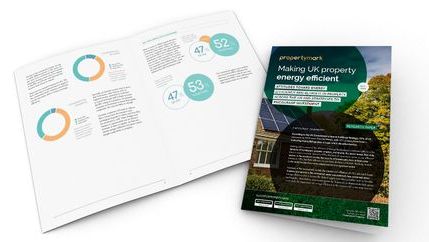
Positive steps for the PRS
One recommendation was for local authorities to deliver a database of accessible properties, which would be used to signpost older and disabled tenants to suitable homes. This is expected to improve accessibility and help vulnerable groups finding appropriate housing within the PRS.
Additionally, we welcome the Committee's recommendations to increase local authority inspection capacity whilst developing a property MOT for PRS homes as part of the existing mandatory licensing . .
Propertymark repeatedly called for more robust enforcement of existing housing standards rather than more legislation. The Welsh Government should address long-term recruitment shortages in environmental health and improve housing quality and tenant safety without putting landlords under unnecessary pressure.
Concerns over no-fault evictions and compensation proposals
Despite these positive steps, Propertymark remains concerned about the recommendation to explore the feasibility of allowing tenants subject to no-fault evictions to retain the last two months’ rent as compensation. The Renting Homes (Wales) Act 2016 already provides tenants with six months' notice for no-fault evictions, offering greater protection than the legislation in England. Introducing further financial penalties for landlords is counterproductive when they already face rising costs from tax increases, higher mortgage rates, and repair costs, risks restricting the supply of rental homes and driving up rents for tenants. Boosting supply is the most effective way to stabilise rents and prevent further market distortions.
Energy efficiency and rent controls
The inquiry also addressed the energy efficiency of PRS homes, with the Committee highlighting a growing divide between the energy performance of social housing and privately rented properties. Propertymark used its evidence to warn of the dangers of a one-size-fits-all approach to energy efficiency regulations, urging the Welsh Government to provide targeted support for landlords, for example grants and loans via the Development Bank of Walesto decarbonise, without imposing unrealistic or blanket standards that fail to account for the varied nature of Welsh housing stock.
Making UK property energy efficient
Financial implications, practicality, consequences, and communication surrounding energy efficiency measures are key concerns cited in Propertymark’s latest report which provides recommendations to help homeowners, landlords, and tenants save money, create new jobs and fight climate change.
Rent controls don’t work
In addition, we drew on our experience in Scotland to caution against the introduction of rent controls. As seen in other areas, controls can have unintended consequences, such as reducing the supply of rental properties and leading to lower standards in the sector. Propertymark remains committed to working with policymakers to ensure any rent-related measures focus on increasing supply, rather than imposing restrictions that could exacerbate the sector's challenges.
Rent controls distort the market and lead to discrimination
An in-depth examination of nearly 200 studies has evaluated the consequences of rent controls and underlined the negative impacts, echoing Propertymark's evidence to the UK and devolved Governments. The focus of policymakers must be on other actions to make the private rented sector (PRS) more affordable, ensuring an adequate housing supply that meets increasing demand, and tackling existing inequalities of income and wealth.
Data backed evidence
The Committee encouraged the Welsh Government to consider its oral and written evidence concluding that, once sufficient evidence is available, the appropriate Cabinet Secretary issues an update to the Senedd stressing the impact of the measures to dissuade landlords from transferring properties to the holiday lets market.
Additionally, the Committee believes that the Welsh Government should examine the feasibility of developing a statutory rating scheme for letting agents to encourage improvements in housing standards and guide tenants’ choices and that the Welsh Government should not depend upon Rent Smark Wales data to provide an up-to-date picture of the Welsh Private Rented Sector due to accuracy issues.
In line with enhancing data insights, the Committee promotes the benefits of introducing a household conditions survey to improve the data available on Welsh housing stock.
Finally, they believe that the Welsh Government should issue an update on its ambitions regarding Rent Smart Wales’s role in collecting Private Rented Sector rent data.







